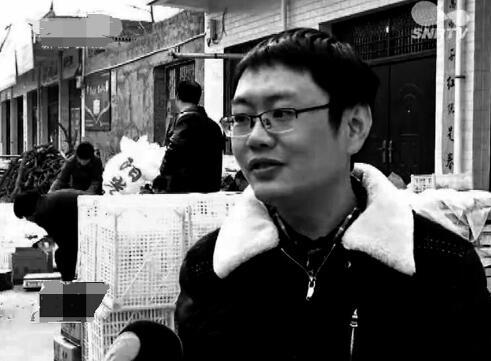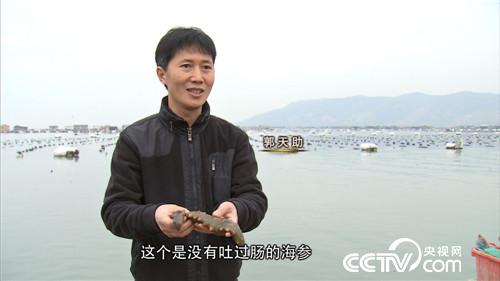College students resign and go back to Shaanxi to sell kiwifruit to become the leader of rural e-commerce.

Fruit and agricultural and sideline products have a good harvest, how to sell? Can you sell it at a good price? It has always been a matter of urgent concern for fruit growers. In the past, they relied on door-to-door purchases by dealers and dealers, and sometimes they would throw the goods in their hands and make a terrible loss. However, in Hedi Village, Jinqu Town, Mei County, Baoji City, with the widespread use of online shops and micro-shops, fruit growers sell their own products. In the past, the fruit harvest hurt farmers no longer existed yesterday. Selling through e-commerce and micro-commerce not only saves a lot of trouble, but also greatly increases the income of fruit growers. Hedi Village has suddenly become a local famous "e-commerce village." Among them, Dai Bin and Zhu Mingjuan, "post-80s white-collar workers" who worked in Shanghai after graduating from university, gave up their affluent life in the city and returned to the village to "start a second business." they led the villagers to set up online shops and WeChat businesses, became the leaders of e-commerce in the village, and made great contributions.
Today, the villagers of Hedi Village, who are busy pollinating fruit trees, cutting flowers and fruits, watering and spraying fertilizer, are idle to participate in e-commerce training and sell agricultural and sideline products online. 230 villagers have set up online shops and become e-commerce and WeChat businesses. On May 5, when the reporter was interviewing Hedi Village in Meixian County, he saw that the village style village had taken on a new look. Most of the villagers were busy pollinating fruit trees, while the young women who stayed at home were busy shipping and selling agricultural and sideline products online, showing a busy scene.
"Shanghai white-collar workers" go back to their hometown to open an online store and sell 2 million jin of kiwi a year.
In Hedi Village, Jinqu Town, Baoji Mei County, a pair of post-80s young people went to work in management and quality inspection in a Taiwan-funded enterprise in Shanghai after graduating from university. they had feelings for each other at work and tied the knot. Her husband Dai Bin earns 150000 yuan a year and his wife Zhu Mingjuan earns 50, 000 yuan a year, belonging to the white-collar class of the company. however, they gave up their life in a big city and resolutely resigned and went back to their hometown Mei County to engage in e-commerce sales. It has opened the largest online store in the village, selling kiwifruit to all parts of the country on the Internet. From September 2015 to May 2016, it sold more than 2000 cases of kiwifruit per day on average, with a cumulative sales of more than 2 million jin and more than 300,000 cases a year, accounting for 1/4 of the total sales of the village.
On May 5, when the reporter was interviewing in Hedi Village, Meixian County, because the local macaques were sold out, the online shop of Dai Bin and his wife had a temporary holiday, more than 50 migrant workers they employed went home to do farm work, and the couple returned to Xiangtan, Hunan Province to visit their relatives. The reporter can only conduct telephone interviews.
According to Dai Bin, he is from Xiangtan, Hunan, and is the son-in-law of Hedi Village. In 2003, he graduated from Hunan Institute of Information, majoring in computer network. After graduating from high school, his wife Zhu Mingjuan went to work in Shanghai and applied to Shanghai Radio and TV University. She majored in logistics management and graduated in 2009. "I am engaged in management work in a Taiwan-funded enterprise in Shanghai. Our department belongs to the vast group and is mainly responsible for the after-sales maintenance of notebook computers. I am mainly engaged in the management of the maintenance department in China, with more than 200 employees. Zhu Mingjuan is engaged in quality inspection in our department. We met at work and got married in 2011. At that time, my income was about 150000 yuan a year, and my wife's annual income was about 50, 000 yuan. At that time, our rent in Shanghai was about 3000 yuan per month, plus other expenses, about 10,000 yuan a month. "
After marriage, Dai Bin and his wife feel more pressure to work outside. one is that they spend a lot of money outside and can't save much money every year, and they may face even greater pressure once they have children. In addition, the old people in the family are also old, so it is really stressful to buy a house and live in Shanghai with their income, and to support the elderly to support their children. At this time, they found that with the improvement of urban living standards, the demand for agricultural and sideline products, especially fruit, is very large, and small fruit supermarkets can be seen everywhere in the city. They often go to the fruit store to buy fruit themselves, but the fruit bought by the fruit store looks beautiful, but it is not necessarily delicious, and food safety is worrying.
So Dai Bin and his wife Zhu Mingjuan discussed: "instead of living such a stressful life in the city, why not go to the countryside to do something practical?" Now the rural economy is developing rapidly, and local farmers in Meixian County have an annual income of more than NT $100,000 for growing kiwifruit. In case of failure, they can only go home and grow kiwifruit, which is better than working in the city. "
In early 2014, they quit their jobs in Shanghai and returned to Hedi Village, Jinqu Town, Mei County, where Zhu Mingjuan was from. They invested nearly 100000 yuan, set up an online store, bought macaques for separate inspection and packaging sales, and began to start a business.
In the early stage of starting a business, it took great pains to get on the right track to benefit the neighbors.
As the saying goes, "everything is difficult at the beginning." the online store platform has been set up, his wife Zhu Mingjuan is responsible for online publicity and promotion, and Dai Bin and his wife's second father, Liu Xiaoying, are responsible for buying macaques in neighboring villages. In order to open up the market, they first give it away for free, the purchase price for one catty is 2.5 yuan, and their online takeout is only 9.9 yuan for 3 jin. Except for packing and postage, there will be no profit and no loss. His father-in-law Liu Xiaolong was skeptical about online sales at the beginning. In the face of this situation, his eyebrows frowned. He didn't know how the two children would end up messing around like this.
Dai Bin recalled afterwards, "the situation of our operation in the first year (2014) was not very ideal. In fact, we were not familiar with the skills of e-commerce sales. In addition, we did not have enough experience in distinguishing the variety and quality of kiwifruit, so the quality control was not very strict. In 2014, we only sold about 50,000 jin of kiwifruit and did not see any profit. At first, when the family heard that we were coming back, there was no special objection, but the situation in the first year was not ideal, and the family began to distrust us a little. "
After summing up his experience, Dai Bin began to play the brand of "green fruit" on the Internet. On the online platform, the whole process of planting, cultivation, pollination, fruit thinning, fertilizer spraying, picking, and packaging of kiwifruit was made into pictures and videos for customers to understand and watch. And welcome to taste it for free. Three months later, sales soared. From 2015 to April 2016, Dai Bin's online store sold 2 million jin of kiwifruit. In order to expand their business, their online store employed 50 villagers, including 40 fruit pickers and packaging personnel, and 10 customer service and after-sales personnel, with an average monthly salary of about 2000 yuan per person, which solved the employment problem of some local villagers and was praised by the villagers of Hedi Village.
Liu Xiaoying, a 48-year-old villager of three groups in Hedi Village, is Zhu Mingjuan's second father (uncle). He has been growing kiwifruit for 16 years. He initially harvested kiwifruit with his niece Kui Daibin and sold it online. He saw that his nephew and niece made a fortune by opening an online shop, but he did not know how to surf the Internet, so with the help of his son who went to college, he also opened an online shop and sold it on WeChat business with his mobile phone. Last year, he not only sold out 20, 000 jin of rhesus monkeys in his family, but also sold all the more than 6000 jin of rhesus monkeys he bought. The purchase price of kiwifruit per jin is 2.5mur3.2 yuan, the online selling price is the same as the retail price, the selling price per jin is more than 6 yuan, and the profit per case is 5mur15 yuan. Mainly sold to Guangdong, Hainan, Shanghai, Fujian and other places.
For online WeChat e-commerce to sell macaques, Lao Liu is full of confidence. He said, "in the past, when we sold peaches, we relied on vendors and merchants to buy peaches. The prices were all set by others. Kiwifruit on three mu of land could sell for more than 20,000 yuan, which was distressing. Now good, three mu of kiwifruit can be sold online for 50-80,000 yuan, the price is determined by ourselves, and we will no longer do that business at a loss. "
Related
- A course of planting techniques and methods on how to grow carrots
- How to plant the latest tulips?
- Is it better to pick tea in the morning or in the afternoon? When is the best time for tea to be picked? what is the third or fifth tea?
- Launch Yuanxiao Happy combination Haocha + Tea Yuan healthy Taste
- Penghu Tourism "Fireworks 20 Parade with You"
- 2022 West Lake Happiness holds "Digital Revitalization Voucher" and draws iphone13 and laptop.
- Banqiao Fuzhou social houses are designed to change start-up combined with police elimination to create a safe and livable environment
- The convenient measure of "mechanical weeding" in Xinbei has been abused and the Agriculture Bureau has imposed heavy penalties on the illegal land consolidation.
- Changgeng University Joins Hands with Four Memory Factories to Rescue Memory Talent Shortage
- The list of Taiwan's top 100 MVP managers is listed by the Director-General of the Farmers' Association of Sanxia District.



